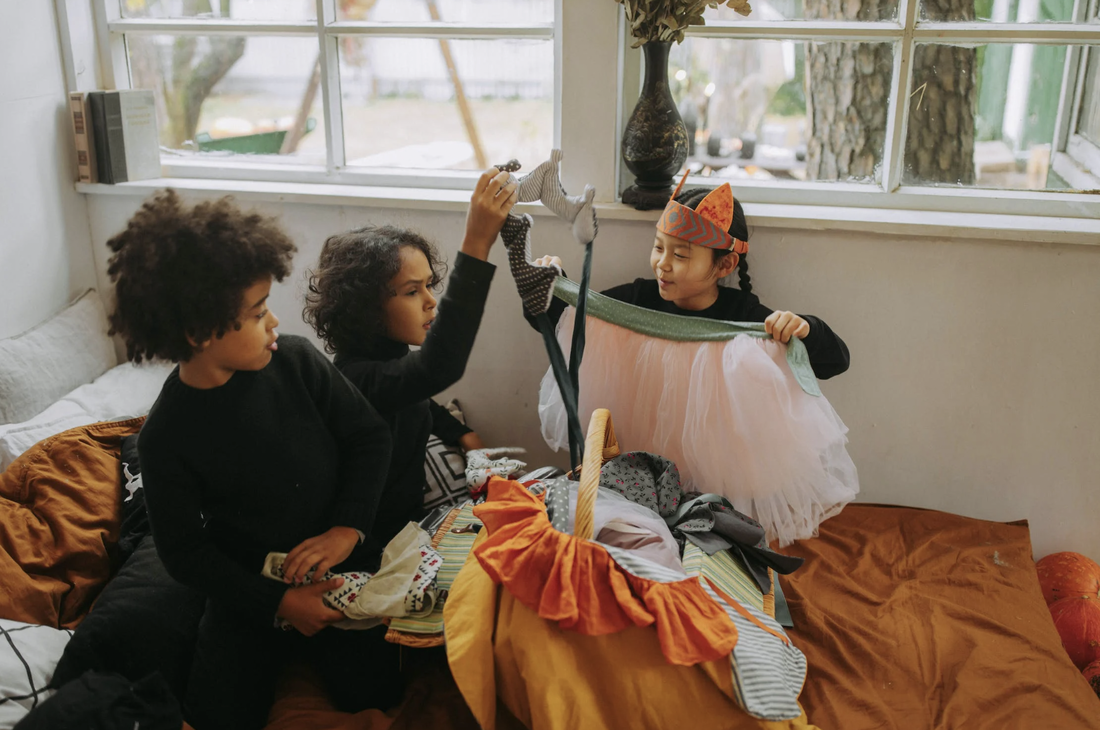|
By: N. Moreau The beloved holiday of Halloween comes from the ancient Celtic tradition known as Samhain. The Celtics believed that on the 31st of October, spirits of the dead would come to haunt the living. On the following day, two other similar traditions take place: Día de los Muertos (which translates to “day of the dead”), and All Hallows Day, or All Saint's Day, a Christian holiday honoring those who passed on to heaven. Over time, these traditions combined to form modern-day Halloween. Its enduring appeal lies in the blend of horror and creativity that it offers, making it an enigmatic holiday that resonates with people all over the globe. Nowadays, the spooky style of Halloween has become a staple of modern pop culture. It's strange, dark, and even whimsical aesthetic is mirrored in iconic horror movies, fascinating costumes, and houses decorated with ghosts, skulls, and monsters. But why do we adore things we would normally find revolting during Halloween?
The allure of horror The fascination with horror is a fundamental aspect of Halloween. Human beings are curious about mysterious things, such as paranormal activity. The unexplained and terrifying also trigger our evolutionary fight or flight syndrome, causing an adrenaline rush. A paradoxical delight comes from facing one’s deepest fears in a safe and controlled environment; the adrenaline excites us, but when we know it isn’t real or have some form of “safety net”, a sense of relief takes over. Faced with what we fear, knowing we are “protected” from it, is one of the reasons why we enjoy the thrill of being scared. Horror, in its various forms, has also come to represent the fears and threats of the time in which it was created. Bram Stoker’s Dracula, for example, was meant to represent the fear of invasive values of other cultures, as well as the fear of sexual and religious deviance within strict Victorian society. People collectively enjoy these eerie stories and characters because they mirror our collective fears, allowing us to confront them in a controlled setting. The joy of costumes One of the defining features of Halloween is the opportunity to dress up in spooky costumes. This tradition allows people to express their creativity and aspects of their personalities they don’t typically express. It's an opportunity to be someone or something entirely different, even if it is just for one night. Whether it's a wicked witch, a funny monster or a celebrity, costumes enable us to step into new personas and break free from societal norms. Additionally, Halloween costumes evoke nostalgia. Many people who grew up celebrating Halloween have fond memories of trick or treating with friends or attending Halloween parties, and dressing up helps us recreate those cherished moments. Moreover, wearing costumes on Halloween immerses us in a world of fantasy and playfulness, far from our daily routines. In the midst of multiple different holiday traditions, Halloween stands out as a spooky and unique gem, fueled by a blend of horror and creativity. It serves as a fascinating mirror to society's ever-evolving fears, a reflection of our deepest anxiety expressed through literature, films, and folklore. This nostalgic holiday also allows us to express ourselves and connect with others by uniting our collective fascination with the macabre. Halloween, with its rich history and pop culture influence, remains a captivating celebration worldwide.
0 Comments
Leave a Reply. |
Categories
All
Archives
June 2024
|

